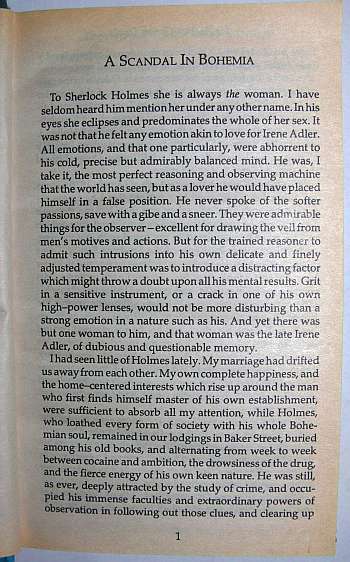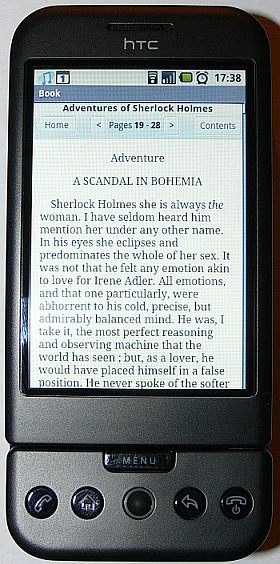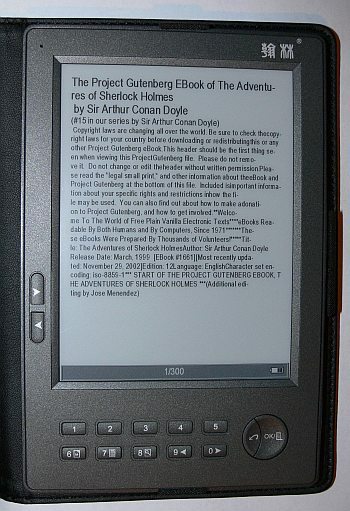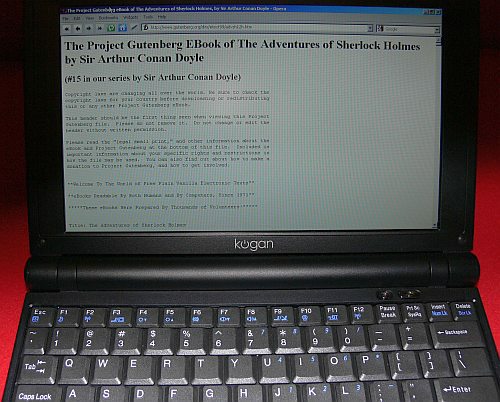
I’ve been wondering recently about what is a book and what are the defining characteristics of a book? How will we read books in the future?
I’m very interested in new bleeding edge technologies and their impact on older forms of information storage, publication and dissemination like printed books.
Reading books and engaging with technology are two of biggest interests because I’ve studied Business/Computing in my undergraduate degree and Information Management in my post-graduate degree to become a qualified Librarian as well as lots of self directed learning by reading books, magazines, websites etc.
What Is A Book?
This is a question we will want to answer if we want to enable books to reflect the electronic age and not the ink-on-paper era, just as Gutenberg and his heirs fully exploited that once-new technology back when, well, the ink was still fresh.
I don’t think a precise definition is possible, certainly not one that will clearly and unambiguously delimit books, journals, magazines, newspapers, and any other print media, and also add electronicity without claiming blogs, RSS feeds, wikis, mail-lists, and website forums. Each of these are distinct entities, yet might share every salient feature with most of the others at its margins.
So let us begin with this: “A book is something you read.” And by that we will not mean something we watch or view.
– excerpt from Future of The Book: What is a book?
How Will We Read Books In the Future?
What I did was compare the experience of reading 1 book “The Adventures of Sherlock Holmes” by Arthur Conan Doyle in four different ways:
- Actual “dead tree” mass market book
- HTC Dream touchscreen smartphone
- Kogan Netbook computer with 10″ screen
- Hanlin V3 Ebook reader I have as a media loan from DA Direct
My conclusion: I love printed books but the inevitable momentum is for books to be read electronically in the future. Printed books may still exist for die-hard “dead tree book fans” but the mass market will be reading electronically. Just like the switch from film to digital photography, the change may only take a few years to take place.
If i had to make a choice I’d say no current technology will win but the dominant method of reading books will be a new device that mixes the best characteristics of touchscreen smartphones and larger dedicated ebook readers
Paper Book

Pros
- Doesn’t need batteries
- Quite flexible and can often be read in bright or low quality light
- Can last decades or centuries if made from quality paper & taken care of it
- Each individual book is light, portable & cheap
- You own the book copy you buy and can resell it or give it away
- Relatively robust and not damaged much if it gets rained on or dropped
Cons
- Requires resource intensive process to create it: trees chopped down, milled, made into paper, printed, transported, warehoused
- Each book you buy requires more physical room
- Holds information as at a point in time, cant be updated
- Can’t be searched like an ebook
- Highlighting, writing notes on pages and folding pages is destructive and permanently changes the book.
Touchscreen Smartphone (as Book Reader)

Pros
- Convergent device that more people are likely to carry in their pocket/handbag as they become used by more people
- Can be searched as well as virtually highlighted and annotated without damaging the original book
- Allows hyperlinking words/phrases to other books, dictionary definitions etc
- Colour screen to view photos/images etc in full fidelity
- Access via mobile/WiFI networks to a virtual library of potentially millions of books through means like the Amazon.com ebook market (paid books) or free out of copyright books via Open Library / Google Books for mobiles
- Touchscreen is an easy way to “flip pages”
Cons
- Small screen size (currently around 3-4 inches) and may not be easy to read in bright/low light
- Limited battery life
- Reading books via a network requires reliable network access!
- Digital Rights Management (DRM) on a paid book may stop you reselling it or giving it away after reading it.
- The specific book you may want to read may not be available electronically
Dedicated E-Book Reader

Pros
- Is designed solely to read books, so in theory it should be a pleasant experience
- Current ebook readers use “E-Ink” technology which requires no front or backlight, is viewable under a wide range of lighting conditions, including direct sunlight
- Requires no power to maintain an image – the model I had on loan said it could be used to read 300 pages/day for a month without needing a recharge
- Can support reading books in many languages
- Store many books via expandable memory card storage eg: SDHC
Cons
- Greyscale screen – so photos and images cannot be viewed properly.
- May be crippled by Digital Rights Management (DRM)
- A small ebook reader with 6 inch screen is too small, but a larger screen eg: 10 inch means more weight and space in your luggage/backpack/briefcase
- Because its a dedicated single use device you also have to carry around a phone and or laptop computer as well as an ebook reader
- Have to pay for the ebook reader and then more $ for each book. Even if ebooks are cheap it may take a few years for the TCO (total cost of ownership) to be worth it
- All the books you want to read may not be available for your e-book platform
- What happens if the company you bought your ebook reader from goes bust?
Netbook/Laptop Computer (as Book Reader)

I gave up on this option really quickly. Notebook computers are too uncomfortable to read books with for any extended period. They have to be on a flat surface, have battery life of only a few hours, get hot if you put them on your lap, you cant lie down and read them etc etc.
Printed Book Will Give Way To Networked Electronic Book
For several hundred years, humans have used print – the book and its various page-based cousins – to move ideas across time and space. Radio, cinema and television emerged in the last century and now, with the advent of computers, we are combining media to forge new forms of expression.For now, we use the word “book” broadly, even metaphorically, to talk about what has come before – and what might come next.
One major consequence of the shift to digital is the addition of graphical, audio, and video elements to the written word. More profound, however, is the book’s reinvention in a networked environment.
Unlike the printed book, the networked book is not bound by time or space. It is an evolving entity within an ecology of readers, authors and texts. Unlike the printed book, the networked book is never finished: it is always a work in progress.
– Excerpt from Future of The Book: Mission
My conclusion: I love printed books but the inevitable momentum is for books to be read electronically in the future. Printed books may still exist for die-hard “dead tree book fans” but the mass market will be reading electronically. Just like the switch from film to digital photography, the change may only take a few years to take place.
If i had to make a choice I’d say no current technology will win but the dominant method of reading books will be a new device that mixes the best characteristics of touchscreen smartphones and larger dedicated ebook readers

Leave a Reply